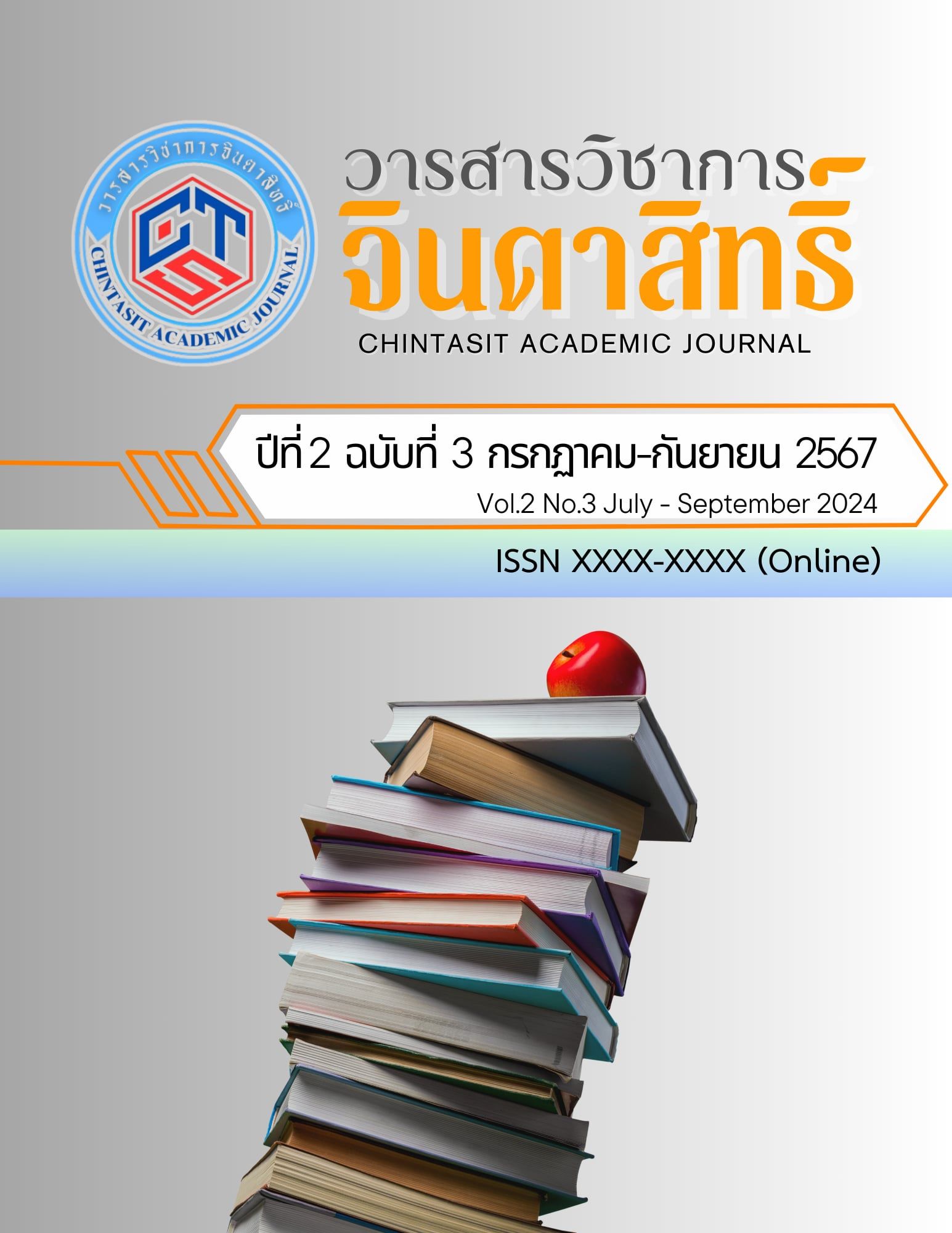จริยธรรมทางการเมืองกับการแก้ปัญหาสิ่งแวดล้อมโลก: มุมมองทางปรัชญาการเมืองสีเขียว
Main Article Content
บทคัดย่อ
บทความนี้นำเสนอการวิเคราะห์ความสัมพันธ์ระหว่างจริยธรรมทางการเมืองและการแก้ปัญหาสิ่งแวดล้อมโลก โดยพิจารณาผ่านมุมมองของปรัชญาการเมืองสีเขียว การศึกษาครอบคลุมแนวคิดหลักของการเมืองสีเขียว ได้แก่ ความยั่งยืนทางนิเวศวิทยา ความยุติธรรมทางสิ่งแวดล้อม การมีส่วนร่วมของประชาชน และการคำนึงถึงผลกระทบระยะยาว บทความนำเสนอการประยุกต์ใช้แนวคิดเหล่านี้ในระดับนโยบาย กฎหมาย การศึกษา ความร่วมมือระหว่างประเทศ และการมีส่วนร่วมของชุมชนท้องถิ่น นอกจากนี้ยังวิเคราะห์ความท้าทายและข้อจำกัดในการนำแนวคิดไปปฏิบัติ เช่น ความขัดแย้งกับผลประโยชน์ทางเศรษฐกิจระยะสั้น ความซับซ้อนของปัญหาสิ่งแวดล้อมโลก และความแตกต่างทางวัฒนธรรมและการเมือง บทความสรุปด้วยการเน้นย้ำความสำคัญของการพัฒนาแนวทางที่สมดุลและยืดหยุ่นในการประยุกต์ใช้จริยธรรมทางการเมืองสีเขียวเพื่อแก้ปัญหาสิ่งแวดล้อมโลกอย่างมีประสิทธิภาพและยั่งยืน
Article Details

อนุญาตภายใต้เงื่อนไข Creative Commons Attribution-NonCommercial-NoDerivatives 4.0 International License.
วารสารวิชาการจินตาสิทธิ์ อยู่ภายใต้การอนุญาต Creative Commons Attribution-NonCommercial-NoDerivatives 4.0 International (CC BY-NC-ND 4.0) เว้นแต่จะระบุไว้เป็นอย่างอื่น โปรดอ่านหน้านโยบายของเราสำหรับข้อมูลเพิ่มเติมเกี่ยวกับการเข้าถึงแบบเปิด ลิขสิทธิ์ และการอนุญาต
เอกสารอ้างอิง
Adamson, J. (2011). Environmental justice, cosmopolitics, and climate change. In L. Westling (Ed.),
The Cambridge Companion to Literature and the Environment (pp. 169-183). Cambridge
University Press.
Bäckstrand, K., & Lövbrand, E. (2019). The road to Paris: Contending climate governance
discourses in the post-Copenhagen era. Journal of Environmental Policy & Planning, 21(5),
-532.
Barry, J. (1999). Rethinking green politics: Nature, virtue and progress. SAGE Publications Ltd.
Boyd, D. R. (2012). The constitutional right to a healthy environment. Environment: Science and
Policy for Sustainable Development, 54(4), 3-15.
Brennan, A., & Lo, Y. S. (2021). Environmental ethics. In E. N. Zalta (Ed.), The Stanford
Encyclopedia of Philosophy (Summer 2021 Edition).
https://plato.stanford.edu/archives/sum2021/entries/ethics-environmental/
Davies, H. (2017). The Well-being of Future Generations (Wales) Act 2015: Duties or aspirations?
Environmental Law Review, 19(1), 41-56.
Dobson, A. (2007). Green political thought (4th ed.). Routledge.
Dryzek, J. S. (2013). The politics of the Earth: Environmental discourses (3rd ed.). Oxford
University Press.
Eckersley, R. (2004). The green state: Rethinking democracy and sovereignty. MIT Press.
European Commission. (2019). The European Green Deal. COM (2019) 640 final.
Fankhauser, S., Averchenkova, A., & Finnegan, J. (2018). 10 years of the UK Climate Change Act.
Grantham Research Institute on Climate Change and the Environment and Centre for
Climate Change Economics and Policy, London School of Economics and Political Science.
Geissdoerfer, M., Savaget, P., Bocken, N. M., & Hultink, E. J. (2017). The Circular Economy–A new
sustainability paradigm? Journal of Cleaner Production, 143, 757-768.
Gough, I., & Meadowcroft, J. (2019). Tackling climate change, reducing poverty: The first report of
the Roundtable on Climate Change and Poverty in the UK. New Economics Foundation.
Heffron, R. J., & McCauley, D. (2018). What is the 'Just Transition'? Geoforum, 88, 74-77.
Henderson, K., & Tilbury, D. (2004). Whole-school approaches to sustainability: An international
review of sustainable school programs. Australian Research Institute in Education for
Sustainability (ARIES) for The Department of the Environment and Heritage, Australian
Government.
Hopkins, R. (2008). The transition handbook: From oil dependency to local resilience. Green Books.
Hutchison, A. (2014). The Whanganui River as a legal person. Alternative Law Journal, 39(3),
-182.
Kopnina, H. (2020). Education for the future? Critical evaluation of education for sustainable
development goals. The Journal of Environmental Education, 51(4), 280-291.
Kotzé, L. J., & French, D. (2018). Environmental law and governance for the Anthropocene. Hart
Publishing.
Lozano, R., Lukman, R., Lozano, F. J., Huisingh, D., & Lambrechts, W. (2013). Declarations for
sustainability in higher education: becoming better leaders, through addressing the
university system. Journal of Cleaner Production, 48, 10-19.
Martinez-Alier, J. (2002). The environmentalism of the poor: A study of ecological conflicts and
valuation. Edward Elgar Publishing.
Newell, P., & Paterson, M. (2010). Climate capitalism: Global warming and the transformation of
the global economy. Cambridge University Press.
Reichstein, M., Camps-Valls, G., Stevens, B., Jung, M., Denzler, J., Carvalhais, N., & Prabhat.
(2019). Deep learning and process understanding for data-driven Earth system science.
Nature, 566(7743), 195-204.
Schlosberg, D. (2007). Defining environmental justice: Theories, movements, and nature. Oxford
University Press.
Stern, N. (2007). The economics of climate change: The Stern review. Cambridge University
Press.
Thompson, D. F. (1987). Political ethics and public office. Harvard University Press.
UNEP. (2011). Towards a green economy: Pathways to sustainable development and poverty
eradication. United Nations Environment Programme.
UNFCCC. (2010). Report of the Conference of the Parties on its sixteenth session, held in Cancun
from 29 November to 10 December 2010. FCCC/CP/2010/7/Add.1.
UNFCCC. (2015). Paris Agreement. United Nations Framework Convention on Climate Change.
Wackernagel, M., & Rees, W. (1996). Our ecological footprint: Reducing human impact on the
Earth. New Society Publishers.
Wichawutipong, J. (2006). Community forest management in Thailand: Current situation and
dynamics in the context of sustainable development. Forest Ecology and Management,
(1-2), 135-146.
Wissenburg, M. (2006). Global and ecological justice: Prioritising conflicting demands. Environmental
Values, 15(4), 425-439.


